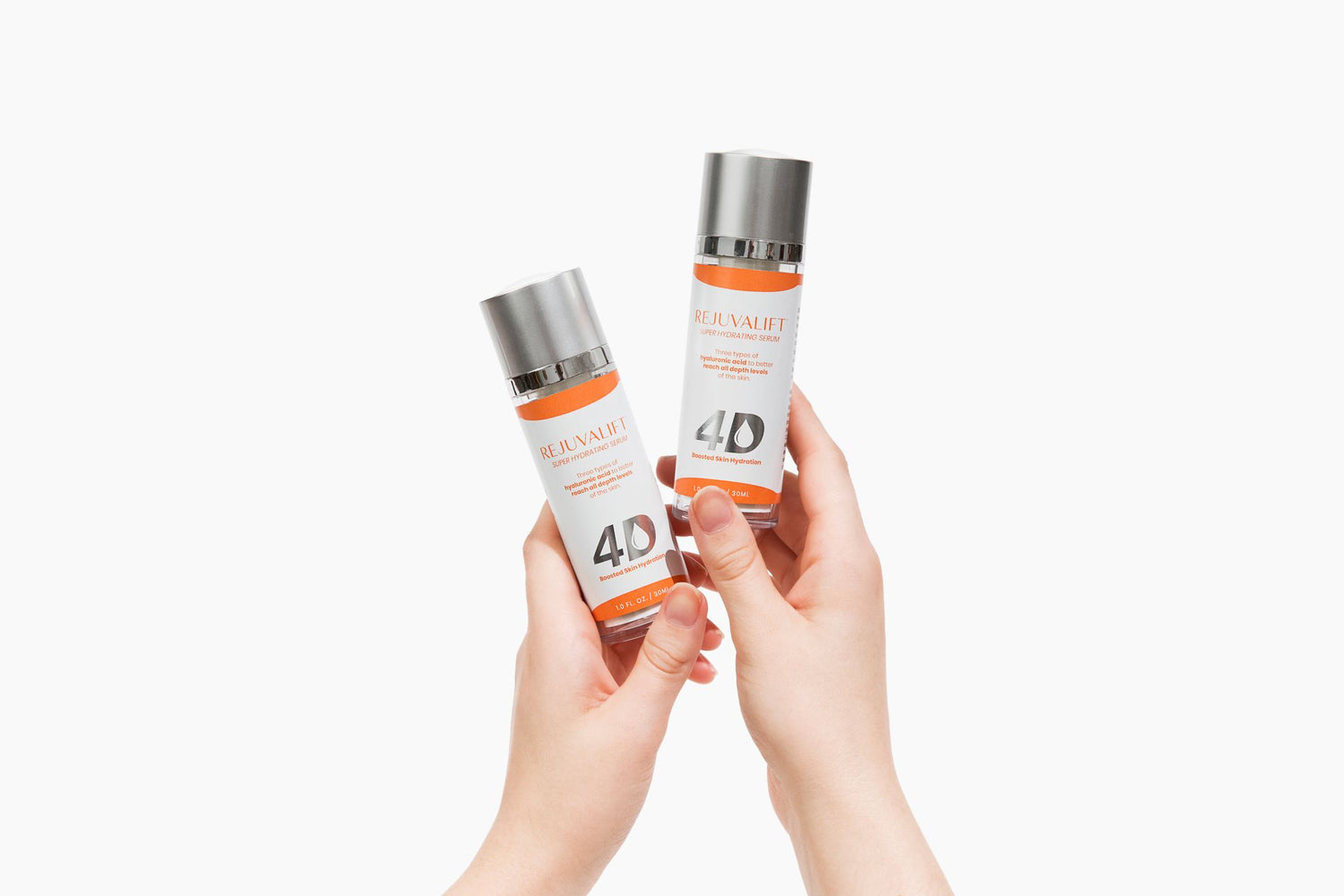Vitamin C serum is a widely recognized skincare product known for its powerful antioxidant properties and ability to improve skin health. It helps combat common skin concerns such as dullness, fine lines, hyperpigmentation, and environmental damage. Dermatologists and skincare experts frequently recommend vitamin C due to its scientifically backed benefits, making it one of the most researched ingredients in modern skincare.
People often ask questions like “when to use vitamin C serum,” “how to apply vitamin C serum,” and “what is vitamin C serum good for?” This guide provides clear, trustworthy information to address these concerns and explain why incorporating a vitamin C serum into your routine can transform your skin.
Related: What Skincare Products have Red Algae?
The Science Behind Vitamin C Serum: How It Works?
Vitamin C is a potent ingredient that works at a cellular level to improve skin health. It provides multiple benefits that contribute to a brighter, firmer, and more youthful complexion.
-
Antioxidant Power: Protects the skin by neutralizing free radicals caused by UV rays, pollution, and oxidative stress. This prevents premature aging and damage.
-
Boosts Collagen Production: Plays a key role in collagen synthesis, helping to maintain skin elasticity and reduce wrinkles over time.
-
Inhibits Melanin Production: Reduces the formation of dark spots, hyperpigmentation, and uneven skin tone by interfering with melanin production.
-
Enhances Skin Barrier: Strengthens the skin’s natural moisture retention ability, improving hydration and preventing dryness.
Key Benefits of Using Vitamin C Serum
✔ Brightens Skin: Helps reduce dullness and enhances the skin’s natural radiance.
✔ Evens Skin Tone: Fades dark spots, acne scars, and sun damage for a more uniform complexion.
✔ Fights Signs of Aging: Reduces fine lines and wrinkles by stimulating collagen production.
✔ Protects Against UV Damage: Works alongside sunscreen to prevent photoaging and sun damage.
✔ Reduces Redness & Inflammation: Calms irritated, acne-prone skin and reduces sensitivity.
✔ Speeds Up Wound Healing: Supports skin regeneration and helps repair damaged skin and scars more quickly.
This combination of benefits makes vitamin C serum a powerful addition to any skincare routine. In the following sections, we will explore how to use it effectively, the best time to apply it, and what to consider when choosing a high-quality serum.
How to Use Vitamin C Serum for Maximum Effectiveness?
Vitamin C serum works best when applied correctly, allowing the skin to fully absorb its benefits. The best time to use vitamin C serum is in the morning, as it provides antioxidant protection against UV damage and pollution. However, some people prefer using it at night for deeper skin repair.
Step-by-Step Guide to Applying Vitamin C Serum
-
Cleanse Your Face: Wash with a gentle cleanser to remove dirt and oil.
-
Use a Toner (Optional): Helps prepare the skin for better absorption.
-
Apply a Few Drops of Vitamin C Serum: Gently pat it onto your face and neck.
-
Let It Absorb: Wait a minute before layering other products.
-
Follow with Moisturizer: Locks in hydration and prevents dryness.
-
Use Sunscreen (Morning Routine): SPF 30+ is essential to protect against sun exposure.
For best results, use vitamin C serum daily and be consistent in your routine.
Choosing the Right Vitamin C Serum
Not all vitamin C serums are the same. The effectiveness of the serum depends on its ingredients, concentration, and packaging. Here’s what to look for when choosing a high-quality product:
-
L-Ascorbic Acid (Best Form): The most potent and fast-absorbing form of vitamin C.
-
Ideal Concentration: A 10-20% concentration is recommended for visible results without excessive irritation.
-
pH Level: Should be below 3.5 to allow deeper penetration into the skin.
-
Combination Ingredients: Works better when combined with Vitamin E, Ferulic Acid, and Hyaluronic Acid for added stability and hydration.
-
Packaging Matters: Vitamin C is sensitive to light and air, so choose serums in dark, airtight bottles to prevent oxidation.
Checking these factors ensures that you’re getting the most effective and stable vitamin C serum for your skin.
When Should You Use Vitamin C Serum? Morning or Night?
The best time to use vitamin C serum depends on your skincare goals and skin sensitivity. Most dermatologists recommend applying it in the morning, but nighttime application can also be beneficial.
Morning Use (Recommended)
-
Provides antioxidant protection throughout the day.
-
Enhances sunscreen effectiveness for better sun protection.
Night Use (Alternative Option)
-
Allows deeper skin repair and collagen production overnight.
-
Better for sensitive skin that may react to sunlight when using vitamin C.
Can You Use Vitamin C Serum Twice a Day?
Yes, but it’s best to start with once daily to see how your skin reacts. If tolerated well, you can apply it in both your morning and evening routines.
Can Vitamin C Serum Cause Acne or Irritation?
Vitamin C serum is generally safe for most skin types, but some people may experience mild irritation, especially if they have sensitive or acne-prone skin. In rare cases, breakouts can occur when introducing a new product, but this is usually due to skin purging rather than actual acne. Choosing the right formulation and concentration can help minimize any adverse effects.
Common Concerns
-
Does Vitamin C Serum Cause Breakouts?
While uncommon, some individuals may experience temporary purging as the skin adjusts to increased cell turnover. -
Can Vitamin C Serum Irritate Sensitive Skin?
If irritation occurs, opt for gentler forms like Magnesium Ascorbyl Phosphate, which is milder but still effective.
Possible Side Effects
-
Mild Tingling: A slight tingling sensation is normal and usually subsides as the skin adapts.
-
Redness or Dryness: If irritation persists, try reducing usage to every other day or switching to a lower concentration.
What Not to Mix with Vitamin C Serum?
To get the best results from vitamin C serum, avoid combining it with certain ingredients that may reduce its effectiveness or cause irritation.
-
Avoid Mixing with Retinol: The combination can be too harsh and may lead to redness, dryness, or peeling.
-
Avoid Niacinamide: Can interfere with vitamin C’s absorption and reduce its benefits.
-
Avoid Benzoyl Peroxide: Can oxidize vitamin C, making it ineffective.
If you want to use these ingredients, apply them at different times of the day (e.g., vitamin C in the morning, retinol at night).
How Long Does Vitamin C Serum Take to Work?
Results from vitamin C serum depend on individual skin types and concerns. While some benefits appear quickly, others take time to develop.
-
Brighter Skin: Most people notice an improvement in radiance and skin tone within 2-4 weeks.
-
Reduced Wrinkles and Fine Lines: Collagen production takes time, so expect visible results in 8-12 weeks with consistent use.
-
Fading Hyperpigmentation: Dark spots and acne scars gradually lighten, usually within 3 months or more.
Conclusion
Vitamin C serum is a powerful skincare ingredient that brightens skin, reduces wrinkles, and protects against environmental damage. Its ability to boost collagen and fade dark spots makes it a must-have for a healthy, radiant complexion. For the best results, use it daily and always apply sunscreen to maximize its protective benefits.
FAQs
Q. What does vitamin C serum do for your face?
Vitamin C serum brightens the skin, evens out tone, reduces fine lines, and protects against environmental damage by neutralizing free radicals. It also boosts collagen production and helps fade dark spots.
Q. What are the disadvantages of vitamin C serum?
Some people may experience irritation, redness, or dryness, especially with high concentrations. It can also oxidize quickly if not stored properly, reducing its effectiveness.
Q. How many drops of vitamin C serum?
Typically, 2-4 drops are enough to cover the face and neck. Applying more than needed won’t increase effectiveness and may lead to waste or irritation.
Q. Is 10% vitamin C serum too much?
No, 10% is a moderate concentration that works well for most skin types. Higher concentrations (15-20%) offer stronger results but may cause irritation for sensitive skin.
Q. Can I skip moisturizer after vitamin C serum?
No, moisturizer helps lock in hydration and prevents dryness. After applying vitamin C serum, wait a minute for absorption, then follow with a moisturizer.


